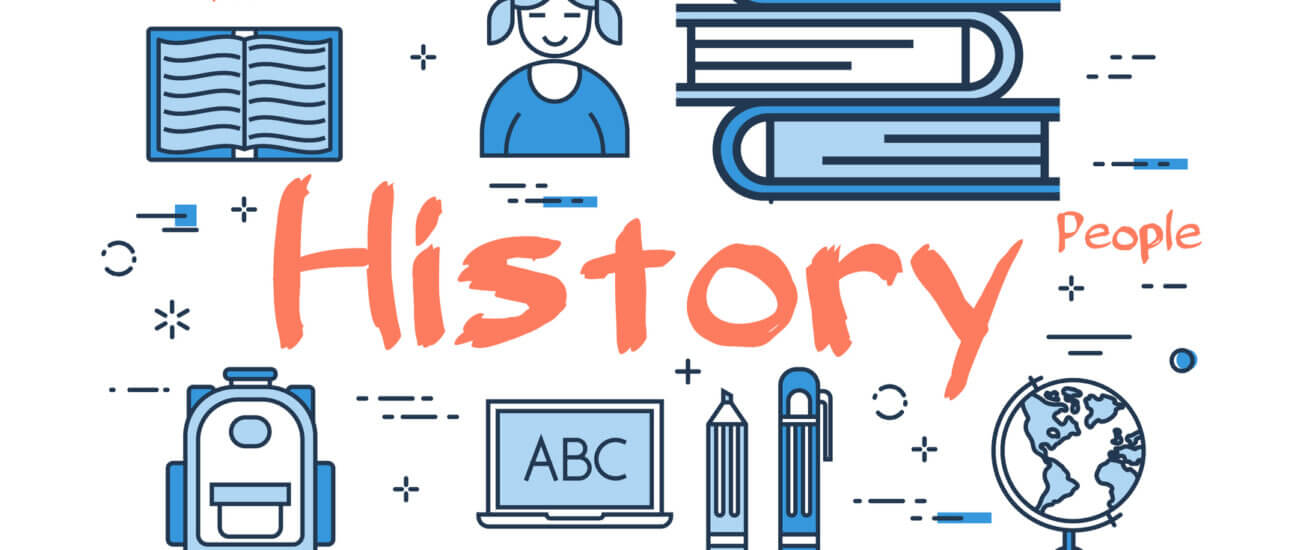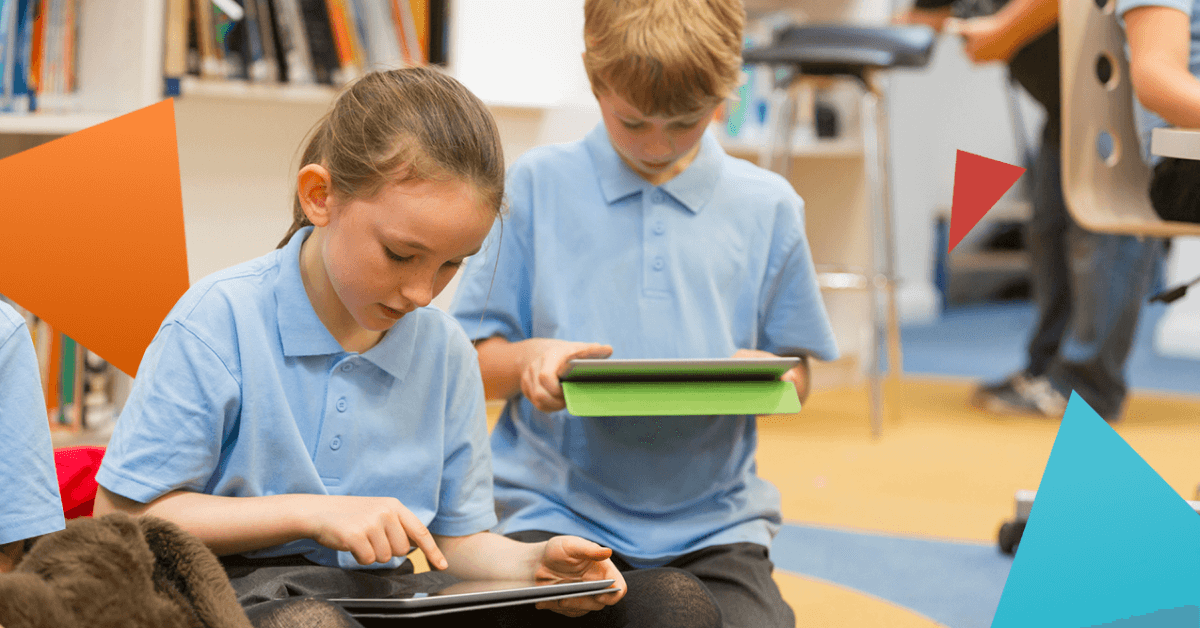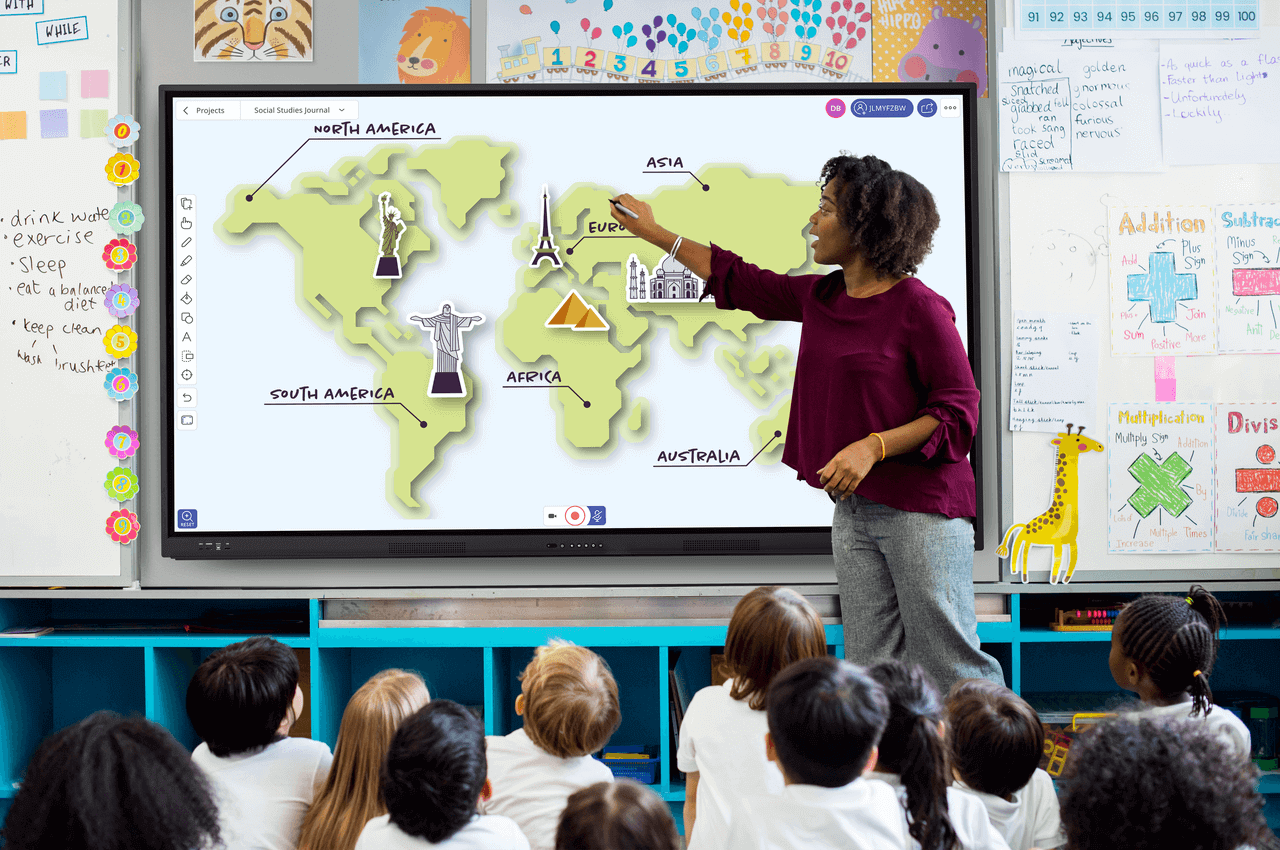Published on June 6th, 2022
History Games For Interactive Whiteboards
17 minute read

Incorporating interactive games into students’ learning has proven to have powerful benefits. Not only can they be a fantastic mood booster, but interactive games can also improve the rate and way with which students learn. Plus, interactive games can motivate students to engage more with the subject and have fun simultaneously!
In this guide, we will walk you through some of the very best history games for students of all age groups.
You can also check out our full list of interactive whiteboard resources.
History Games For KS2
At Key Stage 2, students are beginning to explore the subject of history, learning the basics of what it means to have lived in another time period that is not modern-day. To make a keen history buff out of your students, consider the following interactive games as part of your lessons:
BBC Bitesize KS2 History
BBC Bitesize, more commonly referred to as simply ‘Bitesize’, has been a staple for students and teachers for several years, and it’s now more popular than ever. Although there aren’t many games on the site, those available to choose from are an excellent resource for young children and perfect for those studying at the Key Stage 2 level.
There are two options to choose from:
- Horrible Histories: Raid and Trade – With this game, students can learn about the Viking invasion as well as key dates, how the Vikings lived their daily lives, and the Gods and Goddesses that they worshipped.
- Ancient Greeks: The Argo Odyssey – Children learn all about the Olympic games and family life in ancient Greece, its mythology, the general culture, and their lasting legacy to the world.
These games are created with fun in mind, so expect your young students to enjoy the task of learning and completing these interactive games as a team.
Crickweb
Crickweb allows children to enjoy playing interactive games whilst improving upon their vocabulary and spelling skills!
There are several valuable teaching materials that you will find helpful when creating history lesson plans. The most popular game features an extra-terrestrial encounter in the Roman Empire. In this cartoon game, the aliens need saving from the Romans and not the other way around!
Another well-liked game allows students to match up six images from different decades to better understand how life in Britain has changed from 1948 to the present day. The students are provided with narrated information to help guide them, whilst visuals aid in helping the students better retain the information they have just been presented with.
BBC Interactive Games
While these are far from the most technologically advanced history games that you will come across, BBC Interactive Games do have the benefit of keeping your students wonderfully engaged and eager to play.
BBC Interactive Games include:
- Anglo-Saxon Coins – Identify six coins from the Anglo-Saxon era.
- CDX – Delve into the world of mystery and even murder.
- Death in Rome – Catch a killer in Ancient Rome.
- Gladiator: Dressed to Kill Game – Become a Gladiator and prepare for battle.
- Iron Age Life – Survive Iron Age life.
- Mummy Maker – Prepare the body of a King for burial in Ancient Egypt.
- Pyramid Challenge – Create a tomb fit for a Pharaoh.
- Viking Quest – Loot your way through Viking life.
These are just a few of the history games on offer; others cover periods from the middle ages, Victorian England, World War II, and a whole host of other historical topics.
History Games For KS3
Children at the Key Stage 3 levels are becoming confident in their analytical skills and how to use them. The games below help students to do just that whilst gaining confidence in their ability to trust their observations and explore more out-of-the-box thinking.
BBC Bitesize KS3 History
As previously mentioned, Bitesize is a remarkable online space promoting learning and revision, and at the KS3 level, this is no different.
As a time-travelling agent in ‘History Detectives’, students can travel back to JFK’s Oval Office during the beginning of the Cold War, visit England during the Victorian period, and even travel on a cargo ship during the Tudor period.
Students will use their analytical skills, becoming true history detectives by weighing up the evidence and answering questions. For instance, ‘Did the Cuban Missile Crisis begin the Cold War?’, ‘Were historical figures such as Henry VIII bad?’, and ‘Did mill owners in 1800s England behave cruelly?’.
Hangman History
Hangman History is an excellent resource if you are short on time and want to inject a quick bit of fun into your lesson. There are a handful of hangman games to play through, including subject matter such as the Medieval period, wars, and the Great Plague.
- Age of Exploration Hangman Game
- Medicine through Time Hangman Game
- Battle of Little Bighorn
- The Great Plague Hangman Game
- World War II Hangman Game
While other websites have hangman-type history games on offer, this one is ideal for an interactive display that the whole class or teams can play together and learn whilst they do so. It also makes an excellent revision tool as well.
Planeta 42 History Games
Planeta 42 has a wide range of interactive games that can be well incorporated into learning while allowing students to have fun.
Some of the games included are:
- World War I Puzzle – Determine the Allied country’s flags.
- World War Inventions Puzzle – How military inventions helped win the war.
- Cold War Puzzle 2022 – A game about the power of nuclear warheads.
- WW2 Key Dates Quiz – An interactive map to remember key dates through the Second World War.
This isn’t all, however. There are a wide variety of games available, covering many time periods. Like more old-school game designs, these games don’t have expensive graphics and a state of the art audio, but don’t let that put you off – it certainly won’t deter your students.
History Games For KS4/GCSE
At Key Stage 4 and in the run-up to GCSEs, students will face an increasingly complex workload as part of their history lessons. The games below help simplify some difficult to understand subject matter, breaking it into manageable, digestible components.
Education Quizzes
Not all teenagers will want to play games to aid their learning, so an interactive quiz is the next best thing.
Education Quizzes has a whole host of fun quizzes to test students’ learning and revision. These quizzes can even be used as mock exam questions in the run-up to GCSEs: everything from the World Wars to British History, historical figures, ancient times, and so much more.
Education Quizzes has over 100 interactive quizzes to choose from, each of which is multi-choice, so your students will be required to select the correct answers from four possible options.
Attentat 1942
Attentat 1942 is an original game that focuses on the Second World War and explores the occupation of Prague in the first half of the Twentieth Century.
It is a narrative-driven, serious game that will help students learn about the occupation of Prague from the perspective of those who lived through it. The game uses a blend of interviews, interactive mini-games, and more, all designed to a high level of historical accuracy.
The players take on the character role of a student in the present day. Still, as the game progresses, the students relive the memories of different characters living through the occupation. They then get the opportunity to analyse and evaluate the choices these characters make.
It is the first game of its kind that teaches so much more than just world history, allowing students to get a genuine feel for how difficult life was living under the umbrella of the brutal occupation.
Teach It
Teach It has a large number of paid-for learning materials covering a range of topics, including history. These games are more traditional and don’t necessarily require a whiteboard. You, the educator, can use a range of game templates to develop your own classroom games.
And whilst this is a brilliant resource, we find that whiteboard games are the preferable way forward when it comes to students learning and loving history.
Why Use Games During Your History Lessons?
History games used on an interactive display are so popular because educators are becoming increasingly aware of the benefits they provide, not just to students but also to teachers!
For the vast majority of students, the term ‘Game’ evokes feelings of excitement. When taking part in something fun, the brain produces endorphins, one of a number of ‘happy hormones‘ that give a sense of achievement.
Students learn quicker and more thoroughly when they are happy. They introduce games involving word wars, the middle ages, the ancient world, and the industrial revolution and are more tailored to what they are learning about in their lessons. It is a great way to increase engagement and feel motivated, along with building their confidence.
It also produces a positive educational environment, with happy vibes and a more relaxed atmosphere than traditional lessons. Students will likely not even be aware that they are learning; playing games is less of a task than other methods of teaching for many young students and teenagers.
When students are happy, they are much more likely to pay attention and absorb much more of the information and knowledge that’s being put on display. Furthermore, with interactive whiteboard apps, students can take turns playing the game in groups or as a whole class, allowing them to build bonds and grow with their classmates.
While educational learning from a textbook or a worksheet has its place, the process can be intimidating – even daunting for some – and often considered dry or boring. It can be difficult for students to ingest information when presented with a lot of text, and it usually doesn’t make for pleasant reading.
In fact, it can often leave them dozing off and wholly unwilling or unable to engage with the materials.
But, game-based learning allows both teachers and students not to be concerned about boring history classes! Students will feel energised and encouraged to learn new information and skill sets.
Students are unrestricted when the stress is taken out of learning and generally begin to adopt a positive perception of the classroom and learning overall.
Games can enable students to memorise materials that they otherwise may have had difficulty with. Thanks to an interactive whiteboard, coupled with history quizzes, they can more easily remember key details and more effectively utilise their working memory at a faster rate. This allows students to stay more focused while they learn.
How To Get The Most Out Of Interactive Fun History Games
One of the best ways to get the most out of interactive history games is to allow your students to play against each other in teams to bring out their competitive sides. Divide the class into small groups or allow the students to pick their teams themselves.
A team game can have a host of brilliant benefits, including:
- It teaches the importance of collaboration, teamwork, and a general consensus amongst players.
- It lets social skills flourish, allowing more introverted, shy or slightly nervous students to bring their ideas forward in a small group, rather than the intimidation of addressing an entire class.
- Team games also encourage accountability and responsibility, not to the individual student but the team as a whole. In order to achieve the end goal, they must work together and be accountable for their part in reaching a collective decision or answer.
- Team games allow communication skills to grow and give students increased confidence in their own voice and capabilities. Those students who might struggle to get across their thoughts, feelings and opinions can benefit significantly from group games.
- Completing games alone is one-sided, with the student only ever being exposed to a one-sided belief system; their own. In a group, and to win the game, students have to become open to the other side of the coin and learn to listen to different opinions.
Bring Your Class To Life With An Interactive Display
Finding innovative ways to teach your class History can be challenging. Thankfully, with an interactive display, you can play a host of fantastic games and History quizzes with your students, enhancing their learning!
Here at Promethean, we believe that interactive whiteboards are one of the best tools for creating an engaged classroom with immersive learning opportunities for every subject. Be sure to check out our range of interactive classroom products to enhance your students’ learning today. You can even book a free live demo of the Promethean ActivPanel!




